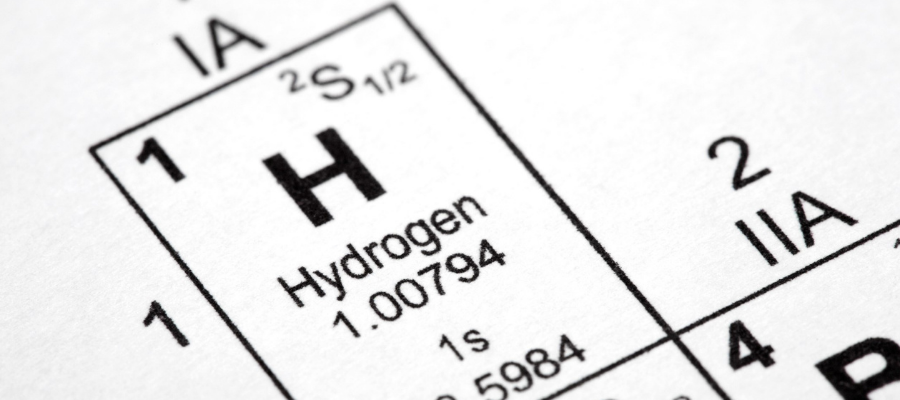Molecular Hydrogen Therapy easily Explained
Molecular hydrogen therapy consists of either inhaling, drinking, or bathing in hydrogen-enriched water. A saline solution containing hydrogen can also be injected into the body, though this is not very common. Despite its huge potential as a restorative aide, so far hydrogen therapy has received relatively little attention in the West. Here we provide a reader-friendly overview of what molecular hydrogen therapy is and how it works.
Hydrogen – the lightest of all gasses

Hydrogen (h2) is the lightest of all gasses and the primary building block of stars such as the sun. As much as 75% of the visible universe consists of hydrogen.
Hydrogen is produced by human intestinal bacteria and plays a remarkable role in maintaining our bodily health by preventing inflammation and working as an antioxidant. It is these natural healing propensities of hydrogen that are employed in molecular hydrogen therapy.
Molecular hydrogen therapy – potential applications
The incredible lightness of hydrogen is part of the explanation for why hydrogen is effective in treating a variety of conditions:
Hydrogen – whether ingested or produced by gut bacteria – is so light that it permeates cell membranes in the body, allowing it to travel to virtually every part of the human system. Hydrogen has anti-oxidative, anti-inflammatory, and anti-apoptotic effects on cells and organs so its ability to reach nearly every nook and cranny in our bodies makes it a potentially powerful healing therapy (source).
Hydrogen in low concentrations is safe and non-toxic for humans. There are no known side effects. Areas, where hydrogen therapy is thought to be of benefit, include:
Recovery
After a workout, our muscles are in a state of inflammation – and h2 has a pronounced anti-inflammatory effect. Therefore, drinking or bathing in hydrogen may assist with recovery, especially with muscle recovery.
Hydrogen also has antioxidant properties. ‘Oxidation’ refers to a process where cells deteriorate. ‘Antioxidation’ is anything that helps to prevent this. Hydrogen’s antioxidant effect again makes it an attractive form of therapy for recovery.
Besides the recovery potential, hydrogen therapy is also effective in the treatment of injury – both skeletal, muscular and liver injury – caused by acute sports.
Skin diseases
Various skin diseases may be alleviated by the use of hydrogen therapy. With dermatological issues, the antioxidant effects of h2 are especially critical.
The biological and antioxidant effects of hydrogen baths have been shown to continue even after h2 has cleared from the body, making it an effective therapeutic tool for skin disease.
Post-grafting treatment
After surgery or organ transplantation, successful grafting is an essential process. Hydrogen, having anti-inflammatory and antioxidant effects, can support the grafting process considerably, especially if it is combined with CO (Cobalt).
Tumor-treatment
In 1975, research showed that hydrogen treatment was effective against tumors in mice. Since then, laboratory studies have shown that hydrogen might be effective in treating human tumors by protecting normal cells from deterioration while inhibiting the growth of the tumor cells. However, actual studies on tumor patients are needed to confirm these findings.
Heart diseases
Hydrogen improves cardiac function, and as such may assist with recovery following heart surgery or injury. That being said, researchers still have a long way to go in developing hydrogen therapy for clinical treatment of heart failure.
Covid-19 and other lung conditions
The fatality of Covid-19 is in large part due to the deteriorating effect the disease has on respiration. Recently, Chinese researchers have suggested that inhaled H2 may be able to alleviate Covid-19 symptoms by inhibiting oxidative stress and inflammation. H2 inhalation may prove equally effective against other kinds of lung diseases.
Is there evidence?

Hydrogen has been used since 1972 to prevent diving sickness during deep, technical dives (in the form of Hydreliox). The first demonstration of the therapeutic effects of H2 was in 1975 when it was administered to mice with tumors.
Since the 1970s, there have been several animal studies which have all shown positive results from hydrogen therapy. In the latter years, some studies have been performed on humans. All of this research has been the subject of review studies such as this study from 2021. One hydrogen inhaler created by Suisonia has even been approved as medical equipment in Japan.
There are solid indications that hydrogen therapy is indeed effective for the conditions described above. However, large-scale human studies are required to confirm these effects.
In the years to come, we will have much more data on the efficiency of molecular hydrogen therapy, as several health institutions recommend its use for a variety of ailments. It is also likely that doctors will discover new conditions against which hydrogen therapy will be an effective, recommended course of treatment.



